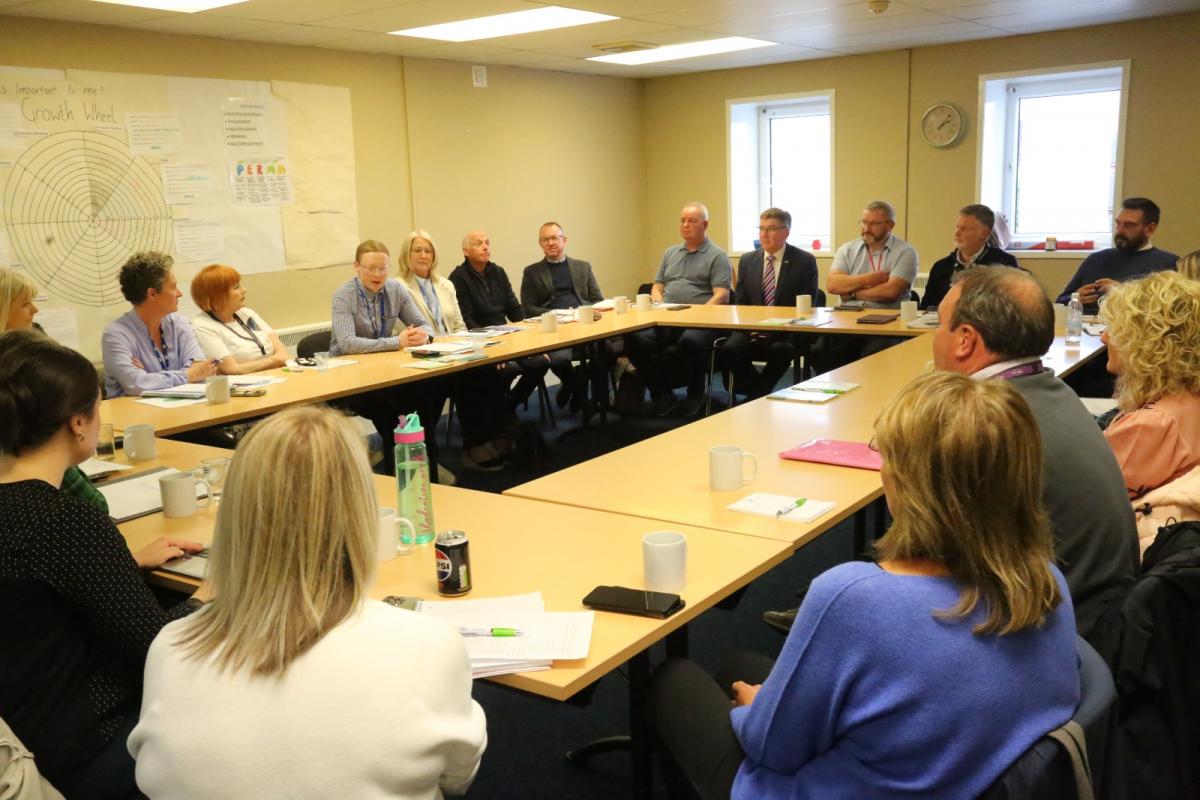SCOTLAND’S drug and alcohol minister says the country can ‘learn a great deal’ from the efforts to bring down Inverclyde’s drug death toll.
Maree Todd was speaking after attending a round-table meeting organised by local MSP Stuart McMillan as part of a series of Recovery Month events across the district.
The event took place after figures published by the National Records of Scotland (NRS) statistics agency last month showed 25 people lost their lives as a result of drug misuse in Inverclyde last year – only one fewer than in 2023.
The same NRS data showed Inverclyde has one of the highest rates of drug deaths in Scotland over the last five years, with only Glasgow City having a worse record.
READ MORE:
Mr McMillan’s event was attended by a wide range of local organisations, including the council, the health and social care partnership, third-sector organisations, community-led initiatives and charities working to support people who are in recovery.
Those attending the meeting also discussed the potential for a safe consumption room to be set up in Inverclyde following the trialling of a similar initiative in Glasgow.
Ms Todd said: “This event highlighted the progress being made and my thanks go to all the organisations for their input and hard work throughout the year.
(Image: George Munro)
“There is a great deal we can learn from Inverclyde. The partnership working demonstrated around the table was very clear, with strong collaboration between statutory services and third-sector providers.
“This has played a central part of our national mission to reduce drug deaths and improve lives, and the experiences shared will continue to play an important role in informing how we take shape our future strategy.”
The NRS found that Inverclyde had a drug death rate of 35.6 per 100,000 people, the same as Dundee, with only Glasgow registering a higher rate, at 41 per 100,000.
(Image: George Munro)
The statistics agency also found that people living in the poorest parts of Inverclyde remain 12 times more likely to die from a drug deaths than the more affluent areas.
Mr McMillan thanked Ms Todd and all the organisations who attended the event.
He said: “We know that turning the tide on local alcohol and drug-related deaths will take time, with new approaches and initiatives being given time to bed in and make an impact.
(Image: George Munro)
“Housing was raised as a key barrier to recovery, but it was reassuring to hear everyone in the room recognise the partnership working which happens locally as this has been critical to ensuring people can access the right services for them.
“The issue of the drug consumption room was raised with The Thistle in Glasgow being highlighted.
“There was never going to be a position taken on such a facility for Inverclyde, but it was a useful opening discussion.
(Image: George Munro)
“Inverclyde is very different from Glasgow and Edinburgh, which is considering two sites for a potential drug consumption room. We don’t appear to have a site or area where drug deaths are concentrated.
“It was useful to have this conversation and hear that many in the room supported The Thistle, as the data does show it’s saving lives.
“It was clear from the discussion that addressing poverty and deprivation is key to saving lives, along with building tight-knit and resilient communities.”
